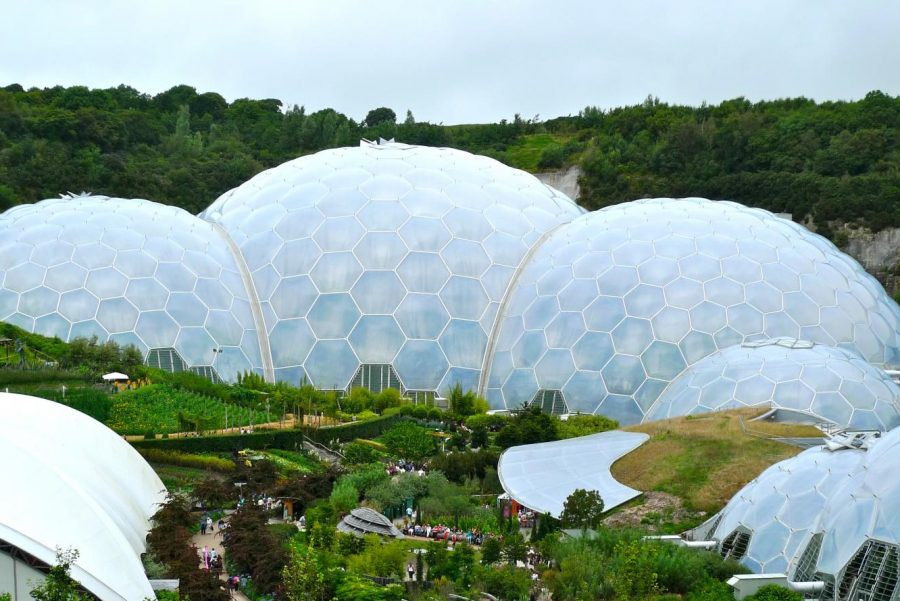With the school year coming to a close, anticipation of a summer free from pandemic regulations has reached an all-time high. However, with COVID-19 restrictions regularly evolving, some may feel unsure of their travel options.
In Cornwall, the Eden Project is a botanical garden unlike any other and makes for an excellent trip during the summer holiday. With its many sustainable initiatives in every sector of the eco-park, the Eden Project is both an immersive experience and a protector of nature.
There are three main biomes in the Eden Project: the Tropical Biome, the Mediterranean Biome and the Outdoor Biome. Each one contains unique sets of plants and wildlife from habitats worldwide.
The Tropical Biome consists of banana trees, coffee, rubber and giant bamboo. The Mediterranean Biome, on the other hand, contains plants that are typically considered more European such as olive trees and grapevines. Finally, the Outdoor Biome is an uncovered area with fields of flowers and nature that provides homes for pollinators.
From an ecological standpoint, the construction of the biomes is sustainably sound. They are made from a thermoplastic called ethylene tetrafluoroethylene (ETFE), which helps the biomes maintain warm temperatures for the growing plants.
ETFE is lightweight and can withstand extreme weather conditions. However, if a tear were to occur, there is a specific tape that will repair the material without requiring a replacement panel. ETFE is also a cheaper and safer alternative to recycled glass.
Furthermore, the Eden Project uses a multitude of strategies designed to reduce waste; for example, the buildings are powered by wind harnessed energy along with a system for rainwater collection. Both tactics minimize the consumption of natural resources.
In addition to the produce grown within the center, over 80% of the catering budget is used to purchase ingredients from local suppliers. The kitchen is also equipped with eco-friendly bamboo utensils. These actions take steps toward sustainable cooking which will ultimately reduce the Eden Project’s carbon footprint.
There is also a “Rainforest Research Group” studying the properties of healthy soil in an attempt to better nourish the plants in the biomes at the Eden Project. The group intends to create a final product that provides organisms with the nutrients they need to grow and maintain their health.
Known for its work as an educational system, the Eden Project informs visitors about the value of nature conservation and the consequences of climate change. During the pandemic, the organization developed “Eden at home,” a page on its website providing resources that promote sustainable living.
Moreover, the Eden Project Shop provides a wide variety of affordable, eco-friendly commodities, ranging from bathroom products to kitchen utensils to gardening supplies.
After recently reopening May 17, the Eden Project is now available for visitation. Bookings must be made in advance. Click here for more information on purchasing tickets.
Whether you’re an aspiring activist or simply looking to get outside and enjoy the summer weather, the Eden Project provides everyone with the opportunity to become an environmentalist through its hands-on approach to educating visitors about the environment.
I, for one, loved visiting the Eden Project and hope to return this summer. It is not only deserving of praise since it is my name, but because the Eden Project is so inclined to nurture biodiversity. Have a great (and green) summer!






